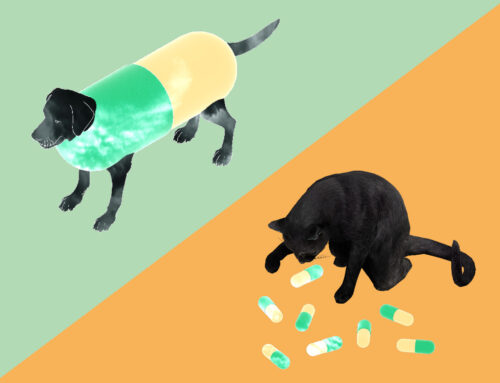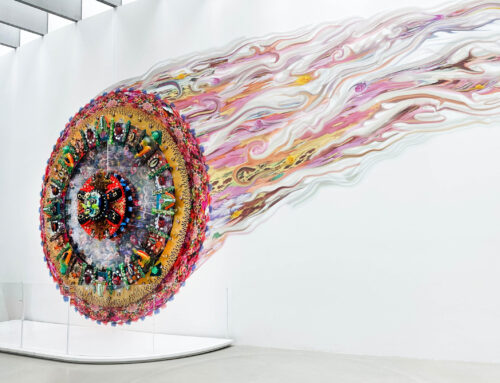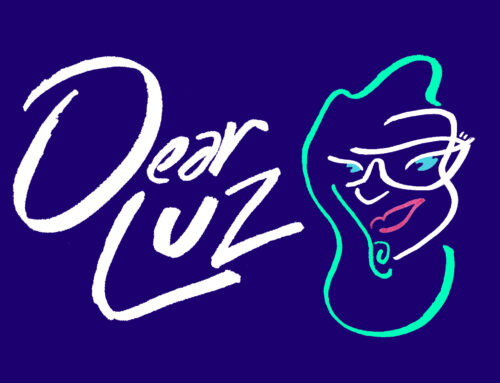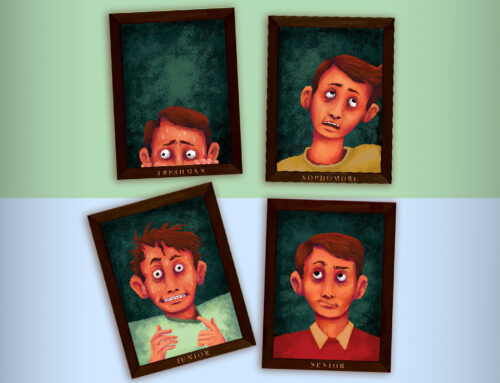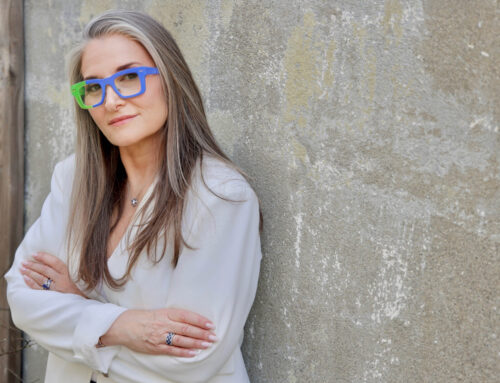Writing by Gia Miller
Photography by Justin Negard
We invited a variety of local music professionals to join us for a conversation about the current state of the industry. Eight experts joined us at Katonah’s Le Fontane restaurant on a Friday night. We spoke (and laughed) for almost two hours.
This is an excerpt of our conversation, which has been edited for clarity. You can watch the video of our conversation on our website.
founder, Hear It There, a media outlet for live music in the region
jazz musician, producer and film composer who goes by the name Mocean (pronounced “motion”) Worker
multi-platinum record producer, songwriter, manager and co-owner of Dirty Canvas Music, LLC
partner at entertainment law firm Granderson Des Rochers, LLP and former executive vice president of Def Jam Recordings
content manager short-form and social media strategy for On Par with Maury Povich podcast, and a former MTV programming & planning curator
co-founder/former owner of Webster Hall
associate counsel of digital legal affairs at Warner Music Group
John Praino
acoustic singer & songwriter
The Icebreaker
We warmed the group up with a rapid-fire word association game.
Vinyl: Record, iconic, classic, collectible, sound, nostalgia, gamified
Cassette tape: Nostalgia, troublesome, rewind, splice, iconic
Lyrics: Song, foundation, bane of my existence, controversial, stories, emotion
Producer: Therapist, people who should be heard and never seen, behind the scenes, Obi-Wan Kenobi
Home studio: Tax write-off, convenience, expensive, superstar, small
Record labels: Evolving, useless, evolving more diplomatically.
Live performances: Essential, community, life support, exciting
MTV: I miss it, iconic, nostalgia, family, TRL, disappointing.
Spotify: Versatile, accessible, handy, mover and shaker, necessary evil.
Tiktok: Necessary evil, but awesome; I know nothing about it.
One hit wonder: Miracle, amazing, lucky, so good
Grammys: We love them, exciting, controversial, good parties, overrated, networking, good for the musicians, community
AI: Future, inevitable, the present, unavoidable, I’m worried about the environment, tree killing, education
Most influential musicians, to you and/or to the world: Stevie Wonder, Seal, Prince, Pink Floyd, Joni Mitchell, John Coltrane, Led Zeppelin, Elvis Costello, Declan, Devo, Pearl Jam, The Allman Brothers Band, The Doors, Miles Davis, Cheap Trick, Thelonious Monk, Peter Gabriel, Bob Dylan, Paul Simon, David Bowie, Waka Flocka Flame, Missy Elliot, Public Enemy, The Beastie Boys, A Tribe Called Quest, Bill Withers, Dr. John, The Rolling Stones, The Beatles, Little Richard, Louis Armstrong, Buddy Holly, Ray Charles.
How has Gen Z’s and Gen Alpha’s purchasing power changed the industry?
Lon: They’re not buying alcohol in the venues. They’re doing mushrooms and gummies beforehand, and that’s replacing alcohol. Most of the guys that I still know in the business are telling me it’s really impacting the bottom line, and I don’t think there’s much you can do about it. I almost think it’s going the way of cigarettes, and that’s because you can’t have two drinks and go for a drive. You get caught by the police, and it’s a serious crime. I think the Gen Zs are really cautious about it and really taking a different approach.
Andrew: When it comes to music, there are obviously no record stores. They’re listening to a lot of music, but their parents are probably paying for their subscriptions. I think they’re saving up and buying merch, collectibles, concert tickets and festival tickets. So, they’re spending money that way, but I don’t think they value it because they’re not saving up for themselves and buying music; they just have every record or every song they’ve ever wanted all the time.
Sarah: I disagree. I was speaking with someone who works in the vinyl space within Warner, and he’s seeing a shift now to Gen Z and Gen Alpha really purchasing collectibles and seeing vinyl as collectibles. They are even going to CDs because vinyls can be $24.98 for the most basic and then $40, $50, $60 for a collectible. So he said he’s seen a shift to CDs as well. So now they’re trying to build those communities that were in the nightclub space before; they’re trying to rebuild them in record stores. That’s becoming their community because they’re no longer in the club.
Lon: Right, and they’re bringing the DJs in the coffee shop. So, it’s a different kind of outlet.
John: You don’t see too many iconic bands; they’re dinosaurs. Like U2 or The Rolling Stones—those big, iconic bands, those front-running bands.
Lynn: The concept of top artists has shifted. It’s a lot harder to become a top artist, and there are way less superstars. There’s no curation, really. We’ve gotten rid of the MTVs, and because everybody’s listening habits are decentralized, there’s very little taste-making and curation and pointing people in a specific direction. So, it seems hard to rise to the level of a Beyoncé or a major superstar.
Shep: It’s so spread out through all the streaming services, which makes it very hard to find someone unless you hear about them.
Lynn: Or you’ll hear they sold out Madison Square Garden for two nights, and you’ve never heard of them. Wow, there’s a whole other ecosystem going on that I’m not aware of.
Shep: There are tons of 17-year-olds making music in their bedrooms, making $60, $70, 80, $90,000 a year, and they’re not with labels. So, there’s this middle class of musicians now.
Elisa: And we don’t know about them if we’re not on TikTok.
Andrew: Streaming platforms and social media allow everyone to be a curator. And if you get one person to like your song, they can influence an algorithm. And then, through social media, that person becomes the biggest trend and sells out Madison Square Garden.
What are the benefits and pitfalls of social media?
Shep: I love it. I really do. I think it’s unbelievable. I was in a band signed to Elektra in the 90s. We almost put out a record, and then when we got dropped, it was like, ‘Here’s your clipboard mailing list with illegible, handwritten fan phone numbers and addresses.’ You were out of business when you got dropped. Now it’s a whole different thing. I could write a song right now on my phone and upload it to SoundCloud. And then you get to keep all your fans organized, and you can contact and talk to them.
Sarah: Now it’s really focusing on the power of superfandom and artists having these super fans, which goes back into the collectibles and the vinyls. There are Facebook groups, which sounds funny because you don’t think of Gen Z and Gen Alpha on Facebook, but there are groups of 10,000 young people who trade and swap music in that way, almost like you would with trading cards in the 90s. Also, social media allows artists to engage with their fans.
Lynn: Now, an artist can communicate with people who are interested in them and build a relationship with them where they support you. I do that with my friends, right? If my friends say they need something, I’m going to show up for them. So if that artist is my friend, I’m going to build a community for them and evangelize them amongst the people that I know.
Adam: Good use of evangelize.
Lynn: Thank you!
Lon: People would sometimes ask us how to get into the music business. Now, you’ve got to bring something to the party. You can’t just show up. You’ve got to really plan your life and use the power of social media. You’ve got to bring that to the party.
Shep: I deal with artists that don’t want to do social media, and I tell them, ‘You’re like an artist getting signed in 1990 who doesn’t want to be on the radio. Go be so good that you don’t need TikTok, and I’ll help you pull it off.’
Andrew: I think social media today gives fans that access into the artist’s life that they crave. Going back to the super fans, I’ve always had that mentality on how to serve specific content to fans. I’ve worked for a lot of emerging tech companies, NFTs and blockchains, in the last five years, so I’m all about how to create that fandom and the collectible. I think fans want that backstage look and a day-in-the-life videos so they can really feel like they get that special access.
Sarah: The access, the behind-the-scenes, that’s huge for K-pop. They all love that and crave that behind-the-scenes. And so much is digital now that you feel like it’s the only way that you can get that special access. There are no shows like MTV Cribs anymore.
Andrew: Exactly, and the artist can monetize that and not let everyone have it. They can tease it and say, whether it’s Patreon or an NFT, ‘You’ll get exclusive access that only 100 people will get.’ It could be a Zoom, an online performance, a meet and greet or a limited-edition item.
Lon: Artists have to make them feel like they’re like part of their family. It’s a really important thing to think about—how to ingratiate yourself with your fans. At Webster Hall, everybody who came in got a ticket to come back. And we were telling them, ‘You’re our friend. Come back now and start feeling cozy. We want you to make this place your hangout.’
Lynn: That’s interesting. It’s one thing for the super fans to want to know everything about an artist, but there are a lot of artists that I really don’t want to know as much about, and I’m kind of mad that I know it. It’s ruined my fandom. Kanye West, for example, I wish I knew less. It’s really taken away from the art. Sometimes there’s too much behind the curtain, and I just want to enjoy this art. Not all artists are wonderful people. Some of them are just super-duper talented, and I can respect that and enjoy that. I don’t expect to be their best friend; that’s not their job.
John: I kind of think it is their jobs, though, to be likable. They always say the worst thing you can do is meet your idol, because you’ll be disappointed.
Adam:But sometimes you meet your idol, and they’re amazing. I’ve had the pleasure of meeting certain musical idols of mine, and it changed my life. But some of them are monsters. You can’t be a monster.
Sarah: We all have different jobs, and you understand that when you’re signing up for this type of job, it comes with X, Y and Z. So, I think that when you’re in the public eye, you realize it comes with X, Y and Z. And it’s not that you have to be the Taylor Swifts or the bubblegum pop princess every single time, but don’t use your platform to be a monster or be on the extreme other end of it. Because you know how much influential power you have.
Lon: What I noticed as I watched thousands of these top folks come through our place over the years is that it didn’t matter if they were Black, white or other; it was musicians in general—they’re different. They’re not like the rest of the people. There are things going on inside their heads that make them come up with those sounds and little hooks and lines, and there’s got to be kind of an understanding, even a little forgiveness for them, and recognize that’s why we like them. That’s why we’re fascinated by what they do.
Andrew: As long as they don’t hurt other people in that process. They can’t cross the line.
Lynn: I don’t expect artists to be wonderful people, but it’s great if they are. I do expect them to be authentic to who they present themselves to be, at least as much as I’m going to see. But I also don’t expect CEOs and bankers to be wonderful people. I just don’t watch them on Instagram all day, so I don’t know as much about how terrible or horrible they are.
Many Musicians feel forced to tell stories differently so they can be released as singles or short snippets. do you think that impedes the creative process?
Lynn: You need to find another hook, another way to bring people into it and to get their attention on the full project, while still being able to break the pieces apart. You could release it initially as a whole project and then release singles.
Shep: Historically, once an album came out, if it didn’t perform, it was over, and stores pulled it off the shelves. It couldn’t be bought anymore.
Adam: But back in the 70s and 80s, if it wasn’t going well, the labels would work to create a third single. And every once in a while, a third single would pop. My father produced an artist named Roberta Flack. The first three records they made with her didn’t sell at all, and then they had the idea to merge her with another artist at Atlantic named Donnie Hackleman. That record sold. Then everybody went back and rediscovered the first three records. Then they made “Killing Me Softly,” and it exploded. And that can still kind of happen today.
Andrew: I see that happening a lot–people going back to an old single a year later.
Adam: Yes. It’s great.
John: That happened with Springsteen. He made two albums, and the third one really put him on the map.
Adam: Yes! The classic thing with labels and artists that has vanished is that you would sign someone, and quite often, it would take until their second or third record for something to happen. You developed artists.
Lynn: And the label had partners that would actually incubate artists.
Adam: Right. But to answer your question about releasing songs and an album in the context of a story, it also depends on the age of the artist. Last year, Peter Gabriel released an album. He released about five songs over the course of six months, and then he dropped the record. Of course, he can also go on the road and sell out venues all over the world, but he was like, ‘Hey, I’m at this point in my life. This is how I’m gonna do this.’ I think it’s contextual.
Shep: That’s why I feel like the labels lost their way for a few decades. So the artists figured out this other way to do it, and now the labels are kind of reclaiming it. They have their own access to the upper parts of Spotify and bigger playlists, but the artists are able to do the development themselves. And you can put songs out, and if they fail, nobody knows and nobody cares.
Sarah: But I would counteract that. I think that’s the role of the labels now, because there is so much content. The platforms are all getting flooded with so much content.
Adam: They’re flooding it with their own AI-generated content.
Sarah: And that’s why I think the labels are having a bigger role now, because they’re able to help curate and get those artists to stand out.
Adam: Shep nailed it. And I’m not attacking the labels, but when you sit on your hands for 10 or 12 years, you lose the talent that actually knows how to find talent. It becomes a non-thing anymore. And there is a beauty curation.
Shep: Artists and repertoire guys used to be much more creative.
Lynn: Now they are a lot more database-driven.
Shep: And that’s great. I love that. I think the deals are like auto-charge deals now.
Lon: But they have to have a show if they want to really do well. If they have a voice that’s equal to everybody else, and there aren’t these iconic acts anymore, then they better do stuff that makes them stand out. What makes them interesting for people to see? It’s show business. They use that word for a reason.
(John needs to leave and says goodbye to everyone.)
Let’s talk about AI. How is it reshaping your job and the industry?
Shep: I haven’t used AI to write songs yet, but every time I’m in a session, someone’s using it. But we do use it for vocals. For example, if I’m singing a demo and I want it to sound like a female artist, an AI app can turn my voice into a female artist. Or a lot of these AI models were built by real people, and you can send the song to the person whose AI voice you’re using, and if they like it, they’ll allow you to release it on their Spotify page, where they could have 350,000 monthly visitors. They’ll get 30 percent of the revenue, and you keep 70 percent. It’s completely avatar-driven, and they’re building their own profiles. It’s crazy.
Andrew: But isn’t there a human who is inputting how they want that song to sound? They’re writing the prompt, right?
Lynn: Yes, and the prompt could be: Make me a song that’s similar to Billy Joel.
Shep: I think that’s going to be a big part of it, though. I don’t have a problem with AI. I don’t think mathematicians feared the calculator. I think it’s a good tool to use in that capacity. But I do think that that should be part of the legality of the whole thing going forward. Your prompt should be open-sourced; if you said, ‘Make this more like that Billy Joel song,’ and that was clear, then cool. I feel like we need open-sourced prompts at some level. Or at least have them be able to be subpoenaed.
Andrew: I think the way you are using it is amazing, and it saves you a lot of time and energy. And I use it on the back end of the industry for social media, copy and the like.
(Lon needs to leave and says goodbye to everyone.)
Elisa: But there are risks, though, of using AI, given that it’s human input. If you ask for Billy Joel, they might take a phrase or some sort of melodic theme.
Adam: A lot of these interfaces, when you type that in, they won’t let you do that. If I typed in, ‘I want a jazz song that feels like a Weather Report song that Miles Davis is playing, so two artists who never worked together. And the AI said no, you can’t do it. Some are ethical, and some are not. But then they’re also helpful. There are applications like Moses, where I put in a Roberta Flack song this morning, and I got 20 tracks spit out to me––the bass line, the high-hat pattern and the percussion. I have access to every split.
Shep: AI is not going anywhere, and even before AI, there was Splice. If you take something off of Splice that’s public, and then it becomes the hook for your song, and then it blows up, does that mean somebody else could use that hook, because it came from Splice? For example, for my song “Best Day of My Life,” if the banjo riff in the beginning was taken off a Splice—it wasn’t, we played it—but if it had been, does that mean Toyota could go to Splice and get that same sample, even though I’ve already made it into a song?
Lynn: It depends on the license.
Shep: Right? So that’s the first step of it.
Sarah: Yes, but you can sample songs.
Shep: Yes, but you have to pay for it.
Sarah: Right. You do have to pay for it.
Adam: You bring up a really good question, because with the sample CDs back in the 90s, all of those drum breaks are from James Brown records.
Lynn: A lot of people got sued for that.
Adam: And a lot of people also never got paid for that—the Amen break, the Apache break, all the James Brown drum breaks.
How can artists today protect their intellectual property, such as their name, image, likeness and even their voice?
Lynn: The voice is the contentious one. And that’s what we’re advocating for right now. There’s lots of legislation to protect against soundalikes and the integrity of your voice. Certain things have been achieved on the state level, like Tennessee has The ELVIS Act, where you can’t inappropriately attribute someone’s voice. Other states do, too, but there’s no federal overarching legislation, which is a problem. But you can protect your name and protect your copyright. Copyright exists when something’s created, so your music is actually protectable.
Sarah: And you can license your voice. The estate of James Earl Jones licenses his voice for Darth Vader.
Shep: I think artists are going to create AI models of their own voice, and it’s going to determine the price they get paid for the feature.
Lynn: Well, there are companies that are doing that now.
Shep: Yeah. For example, an artist says, ‘I want $50 grand to be featured on your bridge,’ and the guy says, ‘I only got $20.’ So the artists could say, ‘That’s cool. Use my AI, and I don’t have to come to the studio.’
Adam: The estate of Morgan Freeman will make money off of voice-overs for eternity. (Laughter.)
Lynn: So let me ask you a question. When that happens, at that point, have we given up on any sort of connection with our artists? Because at that point, whatever you’re getting, you don’t know if they said it anymore or if someone else made them say it.
Shep: It’s pretty crazy.
Adam: It’s very crazy. To answer your question, there are many avenues for artists to register their compositions, and there are PROs in this country.
Shep: From a digital standpoint, music copywriting is the easiest thing in the world.
What about the high school kid who just composed something with their ukulele and put it up on TikTok? Should they protect it?
Lynn: You have to now.
Shep: I used to mail myself a CD or cassette in an envelope that I hadn’t opened just to prove that it existed.
Lynn: If you were to register your copyright for federal protection, there are additional damages that are allowed for registered copyrights. But the copyright still exists, and you can protect your work just as long as you can prove that you made it first.
Adam: One thing I learned from the very beginning is if you work with other people, figure out your splits and register with ASCAP or BMI, and set up a road map for your work and agree on it. Agree on your splits. Splits before hits.
Sarah: On the flip side of that, if you do become a popular artist, and you come out with a perfume line and merch to build your brand, and you’re gaining traction in that space, but you don’t register, all of a sudden, there’s dupe culture. People are totally okay with knowing they’re buying a fake. So, if you haven’t registered your mark, and somebody’s out there flooding the market with stuff that’s not yours, it makes it really difficult for either you or your label or your management to help you enforce your copyright or your trademark.
Lynn: And for those young producers or young artists who are just creating things, if you create them with other people, I totally agree with Adam. Do your split sheets and just stay very organized, because you never know what could pop up 10 years from now. And if you don’t even know who you created it with, or where the files are, or that it even exists, that’s a problem. It’s important to create a catalog for yourself and stay organized.
Adam: There’s nothing worse than something coming out and finding success, and you don’t have the roadmap sorted out.
So, write it down, sign it, and put it in a file?
Lynn: Yes. Everybody that worked on it needs to sign it. And don’t delete that email. It’s actually really important as the music is democratized, because people are creating at the touch of a fast click, and you don’t even know what you have. People send out new packs, and they don’t even remember they made them.
Shep: I have so many records that I produced years ago, and I don’t even remember the band. I’ll hear something, and I’ll wonder, ‘Did I do this? Did I work on this record? Maybe they redid it.’ I can’t even test it, and now it’s all on Spotify. These are bands that in 1994 or 1996, I did the record for them, and they never got deals; they broke up. And then one of the dudes, eight years ago, decided to put it online, and now it has seven million streams. So, then I have to go get my lawyer from ‘93 on the phone.
During COVID, I co-founded a company that was all about that pain point of all of this music that’s out there that’s limping its way to millions of streams that ordinarily, historically, would have been pulled off the shelves. I didn’t really care about those things, but now I’ve got hundreds of songs that are $80 here, $30 there, and I have 100 songs with people where I could get $30 a month for the rest of my life.
Thank you for a wonderful conversation. Let’s end by sharing the song that best describes our conversation this evening.
Shep: “Old Town Road,” because Lil Nas X represents virality. And then he proved that he’s a real artist, and then he wrote really great songs, and I think he checks a lot of those boxes.
Sarah: It’s cheesy, but “Beautiful People.”
Adam: I don’t know a song that encapsulates the conversation we’ve had, but Shep, you just nailed it. So, I will cosign Shep’s.
Elisa: It has no relationship to this, but the first song that popped into my head was “Take Me to the River.” And even though The Talking Heads sang it, it was written by Al Green.
Lynn: I’ll go with Tyler, the Creator’s song “Sticky” because I feel like a lot of these issues are very sticky.
Sarah: I have another one, “Anxiety,” which sampled Goyte and also five other songs. Plus, it dates back to some folk song.
Lynn: Yes! That’s a good one.
Sarah: But then it goes back to a nursery rhyme…
Adam: There’s a nursery rhyme and a Brazilian guitarist…
Sarah: And even before the nursery rhyme, there was something else…
Elisa: I’m so glad you said that, because it came across my Instagram, and it sounded so familiar. It’s Gotye, right?
Sarah: Yeah. You would have known that song from about 15 years ago—2010 or 2011.
Elisa: That’s actually the first song I thought of. Another one-hit wonder.
Andrew: I’d say “Dire Straits Money for Nothing.”
(We asked Lon & John via email since they left early.)
Lon: “Smile” by The Jayhawks
John: The song that came to mind right away was “Sir Duke” by Stevie Wonder. It’s just a great tribute to the power of music through time by a great artist.
This article was published in the July/August 2025 edition of Connect to Northern Westchester.





